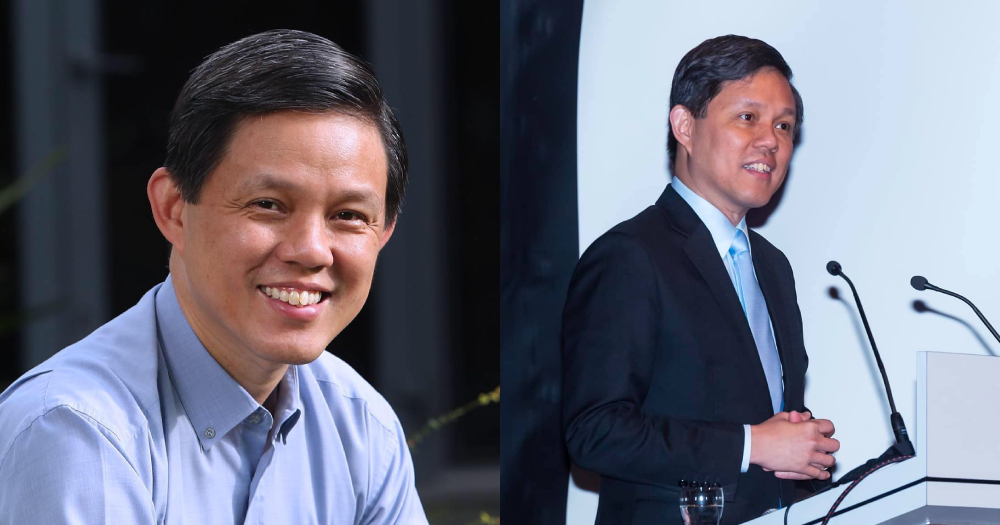Singapore cannot be immune from the fallout of the ongoing trade dispute between the United States and China.
Instead, it must prepare itself to deal with the coming challenges, said Minister for Trade and Industry Chan Chun Sing.
Government will spare no effort to help Singapore stand out from competition
In a Facebook post shared on Tuesday, May 14, Chan said the fallout from worsening trade tensions will affect global business and consumer confidence, hurt global trade, investment, as well as job creation.
But he said Singapore can stand out from the competition through the improvement of its business environment and workers' skills.
Chan added that the government will "spare no effort" to help Singapore's industries become more competitive.
This will help create the right conditions for investors to come, which will in turn bring good jobs for Singaporeans.
Singapore thrives in a rules-based & stable global environment
Chan also stressed that Singapore must continue to work with like-minded countries to uphold a rules-based, stable and predictable global trading system.
Such an environment is crucial as it aids Singapore's growth, which is why the country is pushing for an "integrated global digital economy", rather than risk a "fragmented world" where small countries get shut out, Chan said.
Trade dispute reflects deeper tensions between U.S. & China
Chan also offered his insight into the nature of the dispute between the two superpowers, saying that it reflects not just "short term political and economic pressure", but also "deeper tensions" between the two.
He added that the way both countries perceive and relate to each other have changed significantly:
"Many in the U.S., in and out of the administration, Republican and Democrat, see China as a strategic competitor.
Some in China wonder if the US is seeking to thwart China’s growth."
Singapore depends on a global system where U.S-China relations are stable
And while he said these fundamental issues "cannot be resolved easily", he hoped the two superpowers will "overcome their respective domestic challenges" and deal with each other confidently, on the "basis of mutual respect and mutual benefit".
This is because Singapore, as well as other countries, depend on a global system underpinned by stable U.S.-China relations.
In another Facebook post he wrote after he gave the keynote speech on Tuesday evening, May 14, at the opening dinner of the 6th International Maritime Security Conference (IMSC), Chan said Singapore depends on the security and sustainability of trade for its survival.
And so, Singapore is "fully committed to uphold international law and promote a rules-based order".
U.S.-China trade spat escalating after short truce
Chan's comments came shortly after an escalation of the trade dispute between China and the U.S.
On Monday, May 13, China retaliated with tariffs of its own on US$60 billion (S$82 billion) of American goods after the U.S. raised tariffs on US$200 billion (S$273 billion) worth of Chinese goods, Reuters reported.
The latest round of tit-for-tat tariff increase puts an end to a truce that lasted for more than five months after both presidents agreed in December 2018 to try to negotiate an end to the dispute.
The spat started in March 2018 when the U.S. slapped tariffs on Chinese goods to counter what he claims as unfair trade practices.
While both leaders badly need a settlement for the sake of their countries' economies -- the dispute has sent stocks sliding globally -- they cannot afford to be seen as giving in to the other party.
Nevertheless, Trump said he will meet his Chinese counterpart Xi next month at the G20 gathering in Japan to talk about the issue.
Related stories:
https://mothership.sg/2019/05/singapore-stock-market-us-china-trade-war/?fbclid=IwAR1OEsz1hhUMAHM4OLIA48IWveTnwL29cuU8cpVZkIzN7dxc7XC-KPP-_5w
Top image adapted via Chan Chun Sing's Facebook
If you like what you read, follow us on Facebook, Instagram, Twitter and Telegram to get the latest updates.
